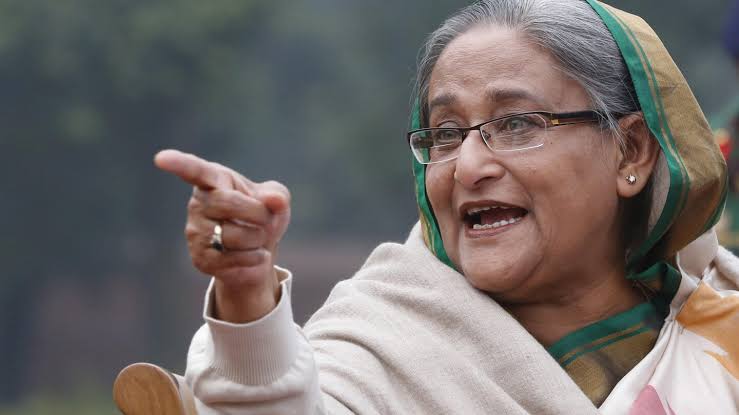Dhaka, Aug 4, 2025 — Bangladesh’s International Crimes Tribunal (ICT) on Sunday began the trial of former Prime Minister Sheikh Hasina in absentia over alleged crimes against humanity during the brutal crackdown on the 2024 student-led protests that culminated in the fall of her government.
In his opening arguments, interim government-appointed Chief Prosecutor Tajul Islam called Hasina the “nucleus of all crimes,” urging the tribunal to hand her the maximum sentence. The prosecution also charged former Home Minister Asaduzzaman Khan Kamal and ex-Inspector General of Police Chowdhury Abdullaah Al Mamun as co-accused in the case.
The tribunal is hearing multiple charges against Hasina, the most serious being her government’s alleged role in ordering killings, torture, and unlawful detentions to suppress the Students Against Discrimination (SAD) movement. The violent street campaign, launched in mid-2024, ended with the toppling of the Awami League government on August 5, 2024.
While both Hasina and Kamal are being tried in absentia, Mamun is in custody and has agreed to turn approver, expected to testify against his former political superiors.
Prosecutors plan to bring forward eyewitnesses and survivors from the protests to testify about state-perpetrated violence. The government alleges that Hasina ordered the use of excessive force, resulting in the deaths of up to 1,400 people between July 15 and August 15, 2024.
Hasina fled to India on the day her government fell and has since remained there. India has yet to respond to Dhaka’s extradition request, submitted by the interim government led by Nobel Laureate-turned-premier Muhammad Yunus. Kamal, too, is believed to be in hiding in India.
This trial follows last month’s ruling by the ICT sentencing Hasina to six months in prison in absentia in a contempt of court case marking the first judicial conviction against the 77-year-old Awami League leader since her ousting.
Meanwhile, Dhaka witnessed parallel rallies ahead of the first anniversary of the July Uprising. Activists from the newly formed National Citizen Party (NCP) and the Bangladesh Nationalist Party’s (BNP) student wing gathered in separate locations. At Dhaka’s Central Shaheed Minar, the NCP unveiled its 24-point manifesto, signaling its entry into mainstream politics.
The tribunal’s proceedings mark a watershed moment in Bangladesh’s post-Hasina political landscape, signaling a shift toward accountability for state violence and a reconfiguration of power shaped by student-led resistance.
Hasina Tried in Absentia as Bangladesh Tribunal Begins Hearings on 2024 Protest Crackdown

